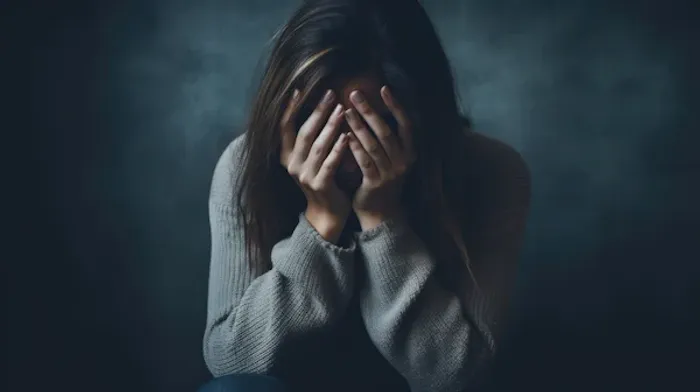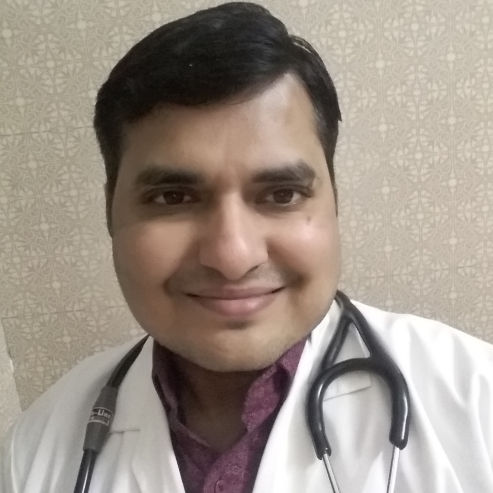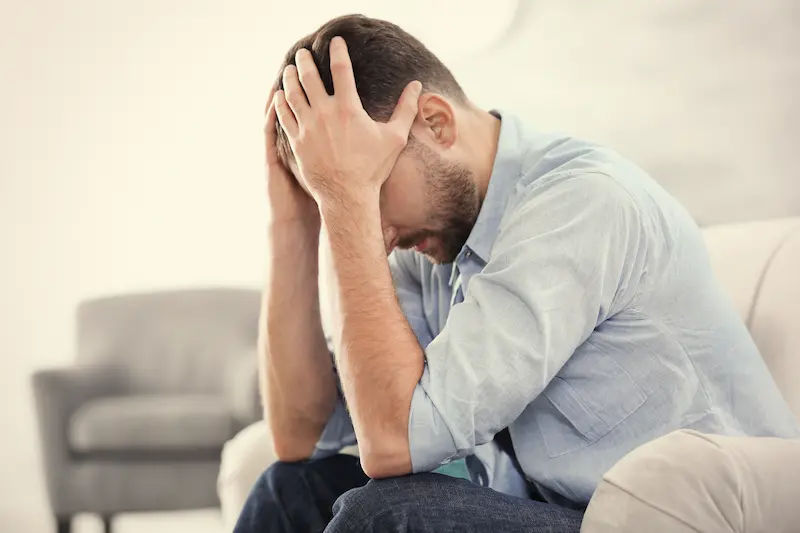A Guide to Depression: Let's Talk About It
Know about the depression, what it is, physical symptoms, challenges, professional help options and self-care tool kit.


Introduction
Depression is more than a passing blue mood; it's a complex mental health condition that affects millions worldwide, influencing how you feel, think, and handle daily activities. Yet, despite its prevalence, a heavy silence often surrounds it. The very idea of starting a conversation about depression can feel daunting. You might worry about being misunderstood, judged, or burdening those you love. This guide is here to change that. We’re going to talk openly about depression—what it truly feels like, why it’s so hard to discuss, and most importantly, how you can find the words to begin your journey toward support and recovery. Whether you're experiencing it yourself or want to better understand a loved one, breaking the silence is the first and most courageous step. Let's talk about it.
What Does Depression Really Feel Like?
Describing depression to someone who hasn’t experienced it is like trying to explain a colour they’ve never seen. It’s often minimised as simple sadness, but it’s a pervasive state that colours every aspect of life. Many describe it as a heavy blanket that smothers joy, motivation, and energy, making even the smallest tasks feel insurmountable.
Consult a Top Psychiatrist for Personalised Advice
More Than Just Sadness: The Clinical Symptoms
Clinically, depression is diagnosed when a person experiences a persistent low mood or loss of interest in activities (anhedonia) for at least two weeks, along with several other symptoms. These signs of clinical depression can include:
Feelings of hopelessness, worthlessness, or excessive guilt.
Significant changes in appetite or weight.
Sleep disturbances—either insomnia or sleeping too much.
Noticeable restlessness or slowed movements and speech.
Fatigue or loss of energy nearly every day.
Difficulty concentrating, thinking, or making decisions.
Recurrent thoughts of death or suicide.
It's crucial to understand the difference between sadness and depression. Sadness is a natural, temporary emotional response to a difficult event. Depression, however, often persists without a clear "reason" and can make you feel numb rather than just sad.
The Invisible Weight: Physical Symptoms of Depression
Depression isn't all in your head; it has tangible physical manifestations. The mind-body connection is powerful, and mental health struggles frequently present as:
Unexplained aches and pains, such as headaches or back pain.
Digestive issues.
A weakened immune system, leading to more frequent illnesses.
This is why a holistic approach to treatment is essential, addressing both the psychological and physical aspects of the condition.
Why Is It So Hard to Talk About Depression?
Even when you know something is wrong, vocalising it can feel impossible. This barrier is built from several powerful factors.
The Stigma and Misunderstanding
Despite progress, societal stigma around mental health conditions persists. The fear of being labelled "weak," "crazy," or "dramatic" can be paralysing. Many people still mistakenly believe that those with depression should just "snap out of it" or "be more positive," which can make the person suffering feel even more isolated and invalidated.
The Fear of Burdening Others
A common thought pattern in depression is, "I don't want to be a burden." You might convince yourself that your friends and family have their own problems and shouldn't have to deal with yours. This feeling is a symptom of the illness itself, not a reflection of reality. Loved ones generally want to help, but they can't if they don't know what you're going through.
Depression Itself Gets in the Way
The symptoms of major depressive disorder directly combat the act of reaching out. Fatigue saps your energy to make a phone call. Hopelessness convinces you that talking won't help anyway. Brain fog makes it difficult to find the right words. Recognising that this resistance is part of the illness can be the first step in overcoming it.
How to Start the Conversation: A Step-by-Step Guide?
Leaping to talk about your depression is brave. You don't need to have it all figured out. Here’s a practical guide to talking to a doctor about mental health or a trusted person in your life.
Choosing the Right Person and Moment
Start with someone you trust implicitly, a close friend, a family member, a mentor, or a doctor. Choose a time when you are both free from distractions and unlikely to be interrupted. A quiet, private setting can make the conversation feel safer.
What to Expect When You Seek Professional Help
Reaching out to a professional is a pivotal step in recovery. It’s a sign of strength and a commitment to your well-being.
Therapy: Your Toolkit for Recovery
Therapy provides a safe, confidential space to explore your feelings, thoughts, and behaviours with an expert. It’s a collaborative process where you learn practical skills to manage your symptoms.
Cognitive Behavioural Therapy (CBT)
CBT is one of the most effective forms of therapy for depression. It’s based on the idea that our thoughts, feelings, and behaviours are interconnected. A CBT therapist helps you identify negative thought patterns and replace them with more balanced, realistic ones, effectively changing how you feel.
Other Effective Therapeutic Approaches
Other modalities include Interpersonal Therapy (IPT), which focuses on improving relationships, and Psychodynamic Therapy, which explores how past experiences influence the present. The best approach depends on the individual. If your low mood persists beyond two weeks and impacts your daily life, consulting a therapist online with Apollo24|7 can help you determine the best path forward.
Medication: How It Can Help Rebalance Your Brain
Antidepressant medication can be a vital component of treatment, especially for moderate to severe depression. These medications work by helping to correct chemical imbalances in the brain related to mood and emotion. They are not "happy pills" but rather a tool that can provide the stability needed to engage effectively in therapy and daily life. A psychiatrist can guide you on the appropriate type and dosage. It's important to remember that medication often takes several weeks to show full effect and should always be taken under medical supervision.
Building Your Support System and Self-Care Toolkit
Professional help is crucial, but your daily habits and support network form the foundation of long-term management.
Small Steps, Big Impact: Lifestyle Adjustments
When you're depressed, self-care is often the first thing to go, yet it's one of the most powerful natural ways to cope with depression. Focus on small, achievable goals:
Movement: A daily 15-minute walk can boost endorphins and improve mood.
Nutrition: Eating balanced meals helps stabilise energy levels. Sometimes, depression can be linked to nutritional deficiencies; Apollo24|7 offers convenient home collection for tests like vitamin D or HbA1c to check underlying factors.
Sleep Hygiene: Aim for a consistent sleep schedule.
Mindfulness: Practices like meditation or deep breathing can help calm an anxious mind.
The Power of Connection and Routine
Isolation fuels depression. Make an effort to maintain social connections, even when you don't feel like it. A brief coffee with a friend or a phone call can make a difference. Similarly, creating a simple, flexible daily routine provides structure and a sense of accomplishment, combating the aimlessness that depression often brings.
Conclusion
Talking about depression is an act of courage that breaks the cycle of isolation and silence. It’s the gateway to understanding, support, and effective treatment. Remember, you are not alone in this experience, and the feelings of hopelessness are a symptom of the illness, not the truth of your situation. By taking the step to speak up, you are already moving toward recovery. Be patient and compassionate with yourself throughout this process. If you take one thing from this guide, let it be this: your voice matters, and your story is worth hearing. If your condition does not improve after trying these methods, consider booking a physical visit to a doctor with Apollo24|7 for a comprehensive evaluation. Let's keep talking.
Consult a Top Psychiatrist for Personalised Advice
Consult a Top Psychiatrist for Personalised Advice

Dr Rohit Ranjan
Psychiatrist
10 Years • MBBS, MD (Psychiatry)
Bengaluru
Apollo Medical Center, Marathahalli, Bengaluru
(25+ Patients)

Dr. Kommoju Venkata Eswar
Psychiatrist
8 Years • MBBS, MD Psychiatry
Avenue
Wellness Point, Avenue

Dr. Vivek Pathak
Psychiatrist
15 Years • MBBS, MD (Psychiatry)
Noida
𝗗𝗿 𝗞𝗨𝗠𝗔𝗥'𝗦 𝗙𝗔𝗠𝗜𝗟𝗬 𝗖𝗟𝗜𝗡𝗜𝗖 𝗮𝗻𝗱 𝗩𝗔𝗖𝗖𝗜𝗡𝗔𝗧𝗜𝗢𝗡, Noida
(25+ Patients)

Dr Harish K S
Psychiatrist
6 Years • MBBS, MD Pychaitrist
Bengaluru
Apollo Clinic, JP nagar, Bengaluru

Dr. Kamal Kishore Verma
Psychiatrist
15 Years • MBBS, MD (SPM), DNB (Psychiatry)
Mathura
PEACEFUL MIND CLINIC, Mathura
(50+ Patients)
More articles from Depression
Frequently Asked Questions
1. What's the difference between feeling sad and having clinical depression?
Sadness is a normal emotion that comes and goes, usually in response to a specific event. Clinical depression is a persistent state that lasts for at least two weeks and significantly impairs your ability to function at work, home, or socially, even in the absence of an obvious trigger.
2. Can depression go away on its own without treatment?
While some mild depressive episodes may pass, it's risky to wait and see. Untreated depression can worsen over time, last for months or years, and increase the risk of recurring episodes. Seeking professional help greatly improves the chances of a faster and more sustained recovery.
3. How can I help a friend or family member who I think is depressed?
Approach them with empathy and without judgment. Use 'I' statements, like 'I've noticed you seem down lately, and I'm concerned about you.' Listen more than you talk, encourage them to seek professional help, and offer practical support, like helping them find a therapist.
4. Are antidepressant medications addictive?
Antidepressants are not addictive in the way substances like alcohol or opioids are. However, they should not be stopped abruptly, as this can cause withdrawal symptoms. Any changes to medication should be managed carefully by a doctor.
5. How long does it take for therapy to work?
Most people begin to see some benefits from therapy within a few weeks to a few months. The full duration of treatment varies depending on the individual and the severity of the depression, but it is a process that builds skills for long-term mental wellness.




